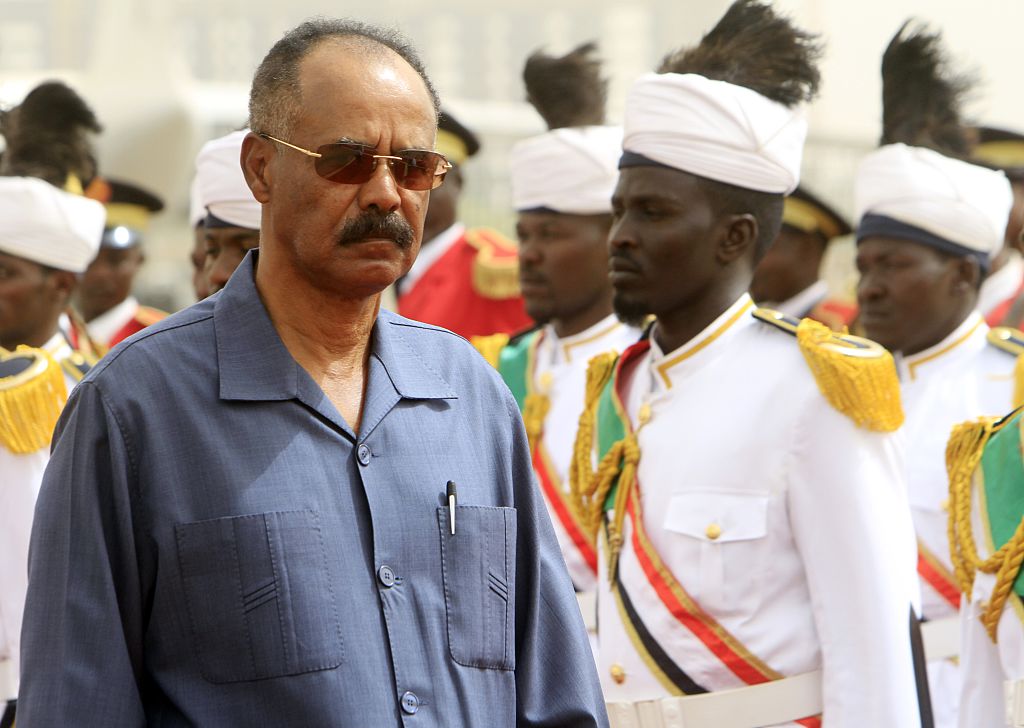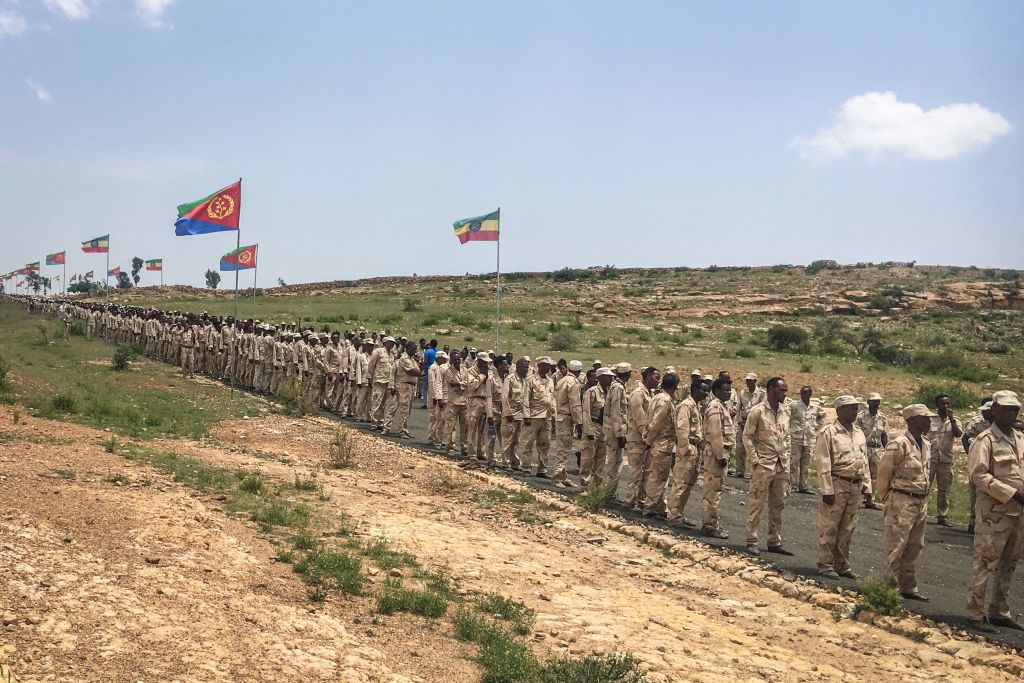Eritrea Looms as Potential ‘Spoiler’ of Peace in Ethiopia
ADF STAFF
As Ethiopia begins the difficult task of fostering peace and reconciliation after a devastating civil war, observers are warning that neighboring Eritrea could upend the process.
Some worry that Eritrean President Isaias Afwerki, whose sizable military remains amassed at the shared border, could launch or support an attack against his longtime foe, the Tigrayan People’s Liberation Front (TPLF). The TPLF led the coalition that governed Ethiopia for 30 years and fought a war with Eritrea from 1998 to 2000.
“Eritrea’s president views this conflict as a zero-sum game. His aim is to finish off the TPLF once and for all,” wrote Mohamed Kheir Omer, an Eritrean researcher, for Foreign Policy. “All parties interested in seeing this peace agreement succeed must be cognizant of the spoiler role Isaias has played in the past in the Horn of Africa — and the risk that he could do it again.”
There are also calls to fully investigate alleged war crimes committed by Eritrean soldiers during their involvement in the Tigray conflict.
The latest revelations have to do with a massacre of more than 300 villagers near the town of Adwa. According to witness accounts collected by The Washington Post, Eritrean soldiers went door to door shooting people, including women, children and elderly priests. Satellite imagery collected by Maxar Technology shows 67 structures damaged or destroyed. The attacks occurred just days before the peace deal was signed on November 2, 2022.

“We want the world to hear what happened,” a woman who said seven of her family members were killed told the Post. “We want people to know what happened to our families.”
Eritrea has played a central role in the conflict. After signing a peace agreement with Ethiopia in 2018 that ended nearly 20 years of hostility, the leaders of the two countries — Prime Minister Abiy Ahmed of Ethiopia and Isaias of Eritrea — became allies.
In 2020, when Ethiopia’s federal government went to war with the TPLF, Eritrea offered support and mobilized its military. With mandatory national service for people between the ages of 18 and 40, Eritrea pushed thousands of men — many lightly trained — to the front lines. Those who refused were arrested, and their family members faced punishments that included being evicted from their homes. At its height, an estimated 100,000 Eritrean troops including 10 mechanized brigades were involved in the fighting, according to The Associated Press.
Global human rights advocates have accused all sides in the conflict, including Ethiopia’s federal military, Tigrayan forces and ethnic Amhara militias, of committing war crimes and human rights abuses.
The United Nations has set a high priority on investigating these crimes with Mohamed Chande Othman, chairman of the Commission of Human Rights Experts on Ethiopia, saying that survivors demand that their stories be told. He called investigating war abuses “as important as ever to creating a durable peace.”
“Peace and justice are two mutually reinforcing objectives,” Othman said. “One cannot exist without the other.”
But as the slow process of healing begins in Ethiopia, observers warn that the international community must guard against Eritrean interference.
“War is the way for Afwerki to stay involved in Ethiopia’s politics,” Nairobi-based analyst Asia Abdulkadir told Bloomberg. She added: “I don’t think it’s in his interests for this conflict to end. This is pure survival for him.”


Comments are closed.